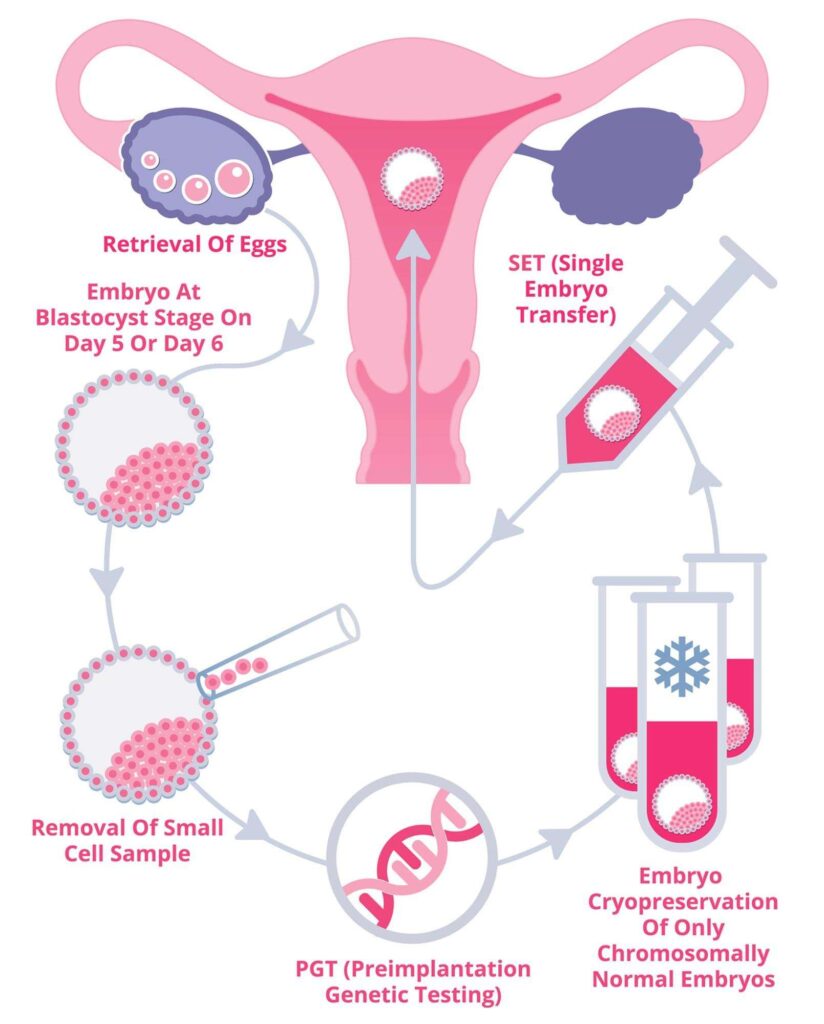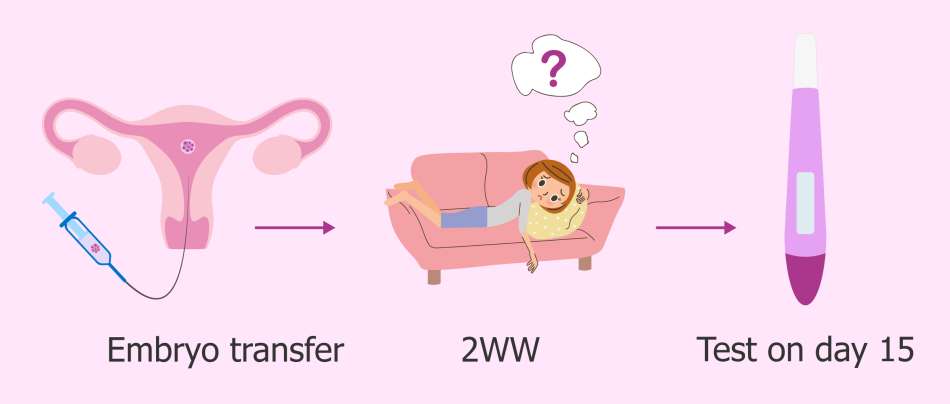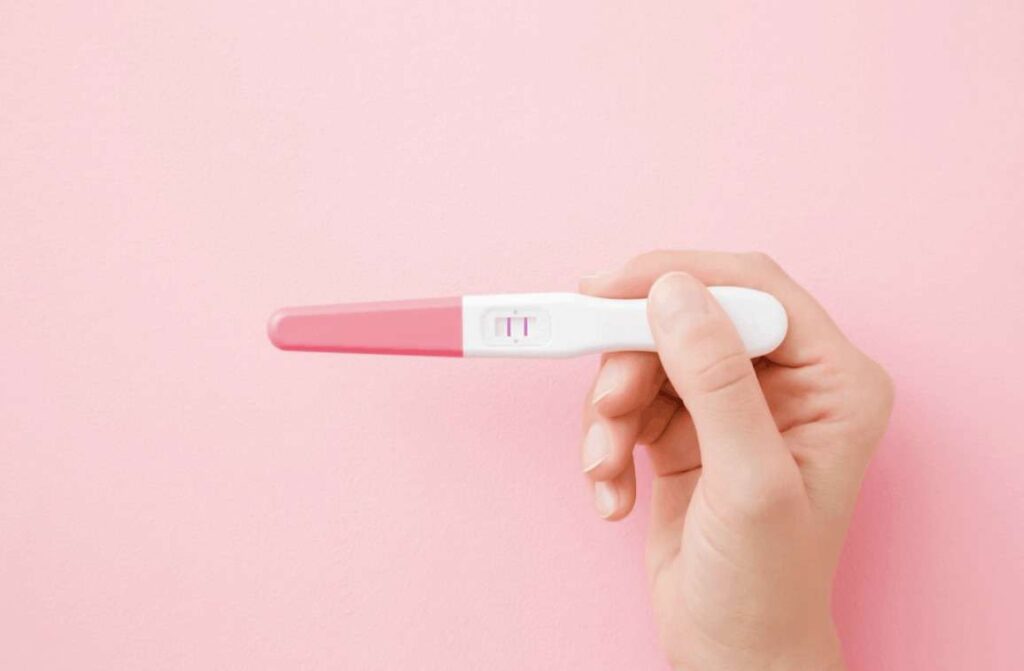When you are trying to have a baby, you will be on the lookout for the earliest possible signs of pregnancy. You will be counting the days past ovulation (DPO), and, if you have undertaken an IVF journey, this wait is even more painstaking.
IVF is a form of assisted reproductive technology (ART) where the egg and the sperm are fertilised ‘in vitro’, outside your body in a lab and help implant the fertilised egg in your uterus. Once this is done, it usually takes 2 weeks for your body to show symptoms.

We know that IVF is emotionally and financially taxing already. However, the wait can undeniably cause your anxiety to peak and you are worried that ‘No symptoms after embryo transfer, is that normal?
What to Expect After an Embryo Transplant?

Did You Know That an Embryo Transfer at the Blastocyst Stage Has the Best Outcome?
Well, I am sure you are worried more about what happens after. After a blastocyst transfer, it takes about 9 days before a pregnancy can be detected. This is what happens to the embryo day-by-day.
- Day 1: The blastocyst begins to hatch out of its shell.
- Day 2: The blastocyst continues hatching and attaches itself to the uterus.
- Day 3: The blastocyst buries itself deeper into the uterine lining, beginning implantation.
- Day 4: Implantation continues.
- Day 5: Implantation is completed and cells that form the foetus begin to develop.
- Day 6: Human chorionic gonadotropin (hCG), the hormone that signals a developing pregnancy, starts to enter the bloodstream.
- Days 7 and 8: Foetal and placental development continues and hCG secretion increases.
- Day 9: Levels of hCG in blood are now high enough to detect pregnancy using a blood test.
After that, it takes a little while longer for the HCG to be detected in urine, which is why it is best to do a home pregnancy test after 2 weeks.
Positive Signs After an Embryo Transfer

Gynecs advise people to be cautiously optimistic, especially while undergoing an IVF treatment. No one symptom has a 100% correlation to successful implantation. But these signs could be a whisper of hope during the wait. So, we are covering a list of early symptoms after embryo transfer and what they could mean.
- Light spotting:
Many see bleeding as a concerning sign, but this blood means good news at this time. It could possibly be due to the successful implantation of the embryo on the uterus wall and that your pregnancy has begun. In addition, spotting can occur when taking hormone medications like progesterone during the 2 weeks after the embryo transfer.
- Breast tenderness
For some women, this could be the earliest sign to signify a positive embryo transfer. Breasts enlarge in size and become tender to the touch. But some women also experience cyclic breast pain due to changes in their hormones before menstruation, which makes it hard to tell.
- Cramping and pelvic pain
This is yet another symptom which gives a 50/50 probability of a successful embryo transplant. While this is very common before menstruation, this could probably indicate your pelvic bones are preparing for the pregnancy by expanding.
- Fatigue and tiredness
Feeling tired is a normal part of pregnancy, and is especially true for women undergoing assisted reproductive procedures and fertility medications due to increased progesterone levels. So if you see yourself taking more naps, it could mean you are pregnant. Tired or not, it is recommended to rest well during the wait.
- Nausea
Although morning sickness (or whole-day sickness) typically starts at 2 months, some women experience nausea right from 2 weeks. However unpleasant, it’s worth noting that it is a sign of a successful embryo transplant. If it lingers the whole day, take help from your doctor to cope with nausea and vomiting.
- Increased vaginal discharge
You may experience increased vaginal discharge during pregnancy. This is to protect the uterus from bacterial infections. The discharge is thin, clear or milky white, and with only a mild smell, and is called leucorrhoea. If you have concerns about unusual discharge, be sure to speak to your doctor.
- Increased need to pee
This rarely happens in early pregnancy. But I did not want to neglect any symptom that would signify a positive embryo transfer. Frequent trips to the bathroom may be due to increased levels of pregnancy hormone hCG, or progesterone spikes.
- Mood swings
The hormones are to be blamed for your drastic mood swings. This can be misleading too, since mood swings are a common PMS symptom as well.
- Missed period
This could be the most obvious sign of a successful embryo transplant. Whether you have a consistent cycle or irregular periods, it may be time to take a pregnancy test to be sure.
No Symptoms After Embryo Transfer, is That Normal?
We know that after an embryo transfer, you would be attentive to every minute sign. However, it is most common not to notice any symptoms in these first days. Pregnancy symptoms are mainly caused by the elevation of the hCG hormone, and in these first days after the transfer, the levels will be very low or undetectable.
For many people, the medications could meddle with the hormones and that is why many people report signs very early. Thus, we can assure you that neither any of the discussed signs nor the absence of any can indicate successful embryo transfer.
Around 10-15% of patients don’t see any symptoms during their two-week wait. So to answer your question, ‘No symptoms after Embryo Transfer, is that normal?’ It completely is!

